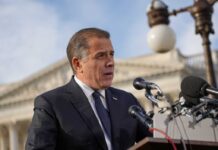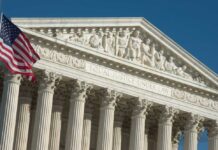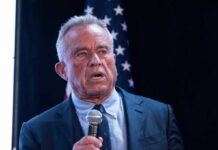
House Judiciary Committee Chair Jim Jordan (R-OH) is seeking clarity on whether YouTube altered its firearm content moderation policies due to pressure from government officials, including Manhattan District Attorney Alvin Bragg. In a letter sent Tuesday to the legal counsel of YouTube’s parent company Alphabet, Jordan requested records and communications concerning the company’s “interactions with the Executive Branch and other entities regarding changes to its firearms content policy.”
This inquiry follows a previously issued subpoena for documents, which Jordan notes is “continuing in nature.” Earlier in June, YouTube announced it would ban content that demonstrates “how to remove safety devices” from guns and limit “content showing the use of homemade firearms, automatic firearms, and certain firearm accessories.”
Jordan’s letter points to reports suggesting that YouTube’s policy changes might have been influenced by government officials and third-party entities aiming to suppress certain Second Amendment-related content. He specifically mentioned a letter from Bragg to YouTube urging the company to revise its moderation policies to “further censor firearms-related content.”
Bragg, a Democrat, recently gained attention for his business records case against former President Donald Trump, who was convicted on 34 felony counts of falsifying business records. In April, Bragg wrote to YouTube expressing concerns over instructional videos on making “ghost guns” and advocating for these videos to be removed and blocked. “Ghost guns” are privately assembled firearms without serial numbers.
Following YouTube’s policy change, Bragg issued a press release claiming the change was in response to his request and thanked YouTube for its cooperation.
Jordan’s letter raises concerns about potential government influence over YouTube’s content policies, especially regarding lawful speech related to the Second Amendment.
“Given that YouTube has censored First Amendment-protected speech as a result of government agencies’ requests and demands in the past, these revelations raise serious concerns about whether and to what extent the Executive Branch is working with third parties and other intermediaries to coerce and/or collude with YouTube to censor lawful speech regarding the Second Amendment and firearms,” Jordan wrote.
He also noted that Bragg had “hired the third highest-ranking Department of Justice official to assist in his partisan prosecution of President Trump,” suggesting a possible connection between Bragg and the federal executive branch.
As the investigation continues, Jordan seeks to uncover the extent of any government involvement in YouTube’s policy decisions regarding firearm-related content. This inquiry highlights the ongoing tension between content moderation practices by private companies and potential government influence, especially concerning sensitive issues like the Second Amendment.














